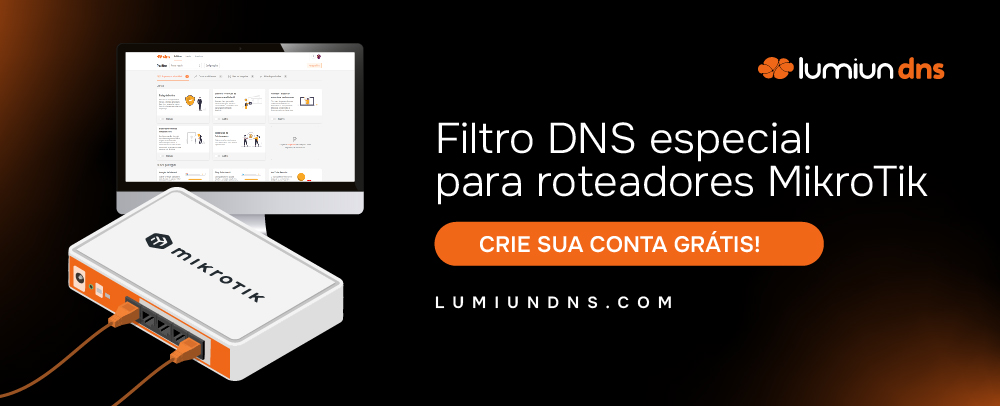Technology has brought us solutions and alternatives that provide more facilities and dynamism to our daily lives. One of these solutions is cloud technology, which allowed us to store data and run applications in a digital environment. However, coupled with this technology, the need to develop safety resources, such as cloud safety, also emerged.
Although there are already security tools aimed at protecting data and devices within companies, it is necessary to have specific safety technologies for cloud computing. Together with technological advances, they also evolved the ways of stealing information, causing data leakage , and causing numerous damage to devices , and it is important to invest in training and additional care to protect data.
To help you better understand how cloud safety and a good cyber security strategy are key to your business, we have prepared this article with everything you need to know about this.
What is cloud security?
We can understand how cloud security as a set of resources, practices and technology aimed at protecting information and data that is stored in cloud architecture. These tools ensure that data that is stored are protected from unauthorized and cybercriminous users.
A company's cloud safety strategy should include process optimization and implementing system safety controls. These measures will help monitor digital resources and the action of possible invaders.
These resources are intended to ensure that business continues and improving measures focused on data confidentiality. Thus, the company may maintain itself in accordance with the specifications and rules implemented by the General Data Protection Law.
Learn more about the rules brought by this new legislation:
How does cloud safety work?
As we said above, cloud safety covers a wide range of tools and methodologies that should be implemented to increase the safety of this technology . The main purpose of these changes is to ensure that data and applications that are stored in a cloud environment are accessed only by properly authorized users.
Safety in cloud architecture encompasses four main factors:
Microssegmentation
Microssegmentation refers to the Data Center segmentation technique of a company in accordance with the level of access and type of individual activity performed. As a result, managers are able to establish access levels and implement specific security policies , minimizing damage that can be caused by an invasion of systems.
Firewall NGFW
Next generation firewall conducts a deeper inspection of access packages within a company's networks and systems. Through its technology it can establish an inspection at the level of application and the resources used, preventing improper access and maintaining the confidentiality of the data.
Encryption
Data encryption allows information to codify, so that access is only performed through a specific key . These coded algorithms help keep data confidential , avoiding improper access and creating an extra protection layer for your information.
Threat detection
Constant monitoring is essential to prevent cyber threats and improper access. It is very important that your company maintain a look at all access made to detect possible unauthorized accesses and malicious behaviors .
Cloud safety benefits
According to a survey conducted by the Brazilian Association of Software Companies , there is a growth prospect of 41% in investment in cloud services by 2023 exceeding 4.5 billion. This research highlighted the growth of this technology and its use by companies.
Since cloud technology is one of the most commonly used tools today , cloud safety becomes indispensable to increase the protection of information that transits the networks and devices of a business. Investing in cloud security resources will bring numerous benefits to your business, such as:
Access control
It is essential to ensure that confidential information can only be accessed by previously authorized users. Thus, cloud security contributes to data protection and allows documents to be available only to certified users.
In this sense, we also refer to the employees of a company themselves. This is because not all employees need to have access to all document levels , and they need to implement specific policies according to business needs.
Data encryption
Cloud security uses encryption to ensure that confidential information cannot be seen without the specific access credential. When moving through the system, data is transformed into a unique and specific code that cannot be accessed or open by users who are not authorized.
Scalability
It is very important that companies have the possibility to transform their technological resources according to their demand. Scalability will ensure that if the company needs to modify its standards or add safety items, this process is done easily and agility.
What are the principles of cloud network safety?
In order to keep up with the constant evolution of technology, security tools undergo periodic updates . When it comes to cloud technology, these improvements are paramount. This is because safety problems within cloud tools can cause the service unavailability and impair the company's image in the market.
In order to ensure that your resources are always protected there are fundamental principles of cloud network safety, as we will see below:
Privileged access of users
To ensure data remain confidential and protected, company managers need to exert more assertive control over the accesses that are performed. For this, there are resources and security tools that help you get complete control over the accesses that are made on a device or network.
This monitoring will help ensure that information has an extra layer of protection, avoiding access to unauthorized users. The higher the company's internet access control, the easier it will be to predict malicious actions and block misconduct attempts.
Compliance
It is the responsibility of the company and its managers to ensure the protection and integrity of the information that is stored by the business . In this sense, it is also the responsibility of the company to ensure that its employees are prepared to deal with this type of information and avoid the data leakage.
The compliance of a company must be regulated and must be fulfilled by employees to avoid the creation of vulnerability points and breaches in security . Problems of this type can cause indescribable business losses and damage your positioning and image in the market.
Data location
The place where data is stored should be safe and reliable to avoid leakage and access from unauthorized users. Incorrect manipulation of this information can cause problems in continuing activities and expose the company to penalties that are imposed by LGPD.
The company responsible for the cloud computing structure should be transparent as the storage site and the safety tools that will be used to maintain this information confidential. In addition, this service provider must also be in accordance with the regulations and rules required by current legislation.
Data segregation
In providing cloud services it is very common for a divided environment for several companies. To avoid problems, it is necessary for the provider company to inform the strategies and resources used for data isolation in its infrastructure.
It is the responsibility of the IT manager to collect this information, understand the operation of the structure and avoid possible implications. For this reason, communication between contracting and contractor company must be clear and objective.
Data recovery
Just as it is essential to have security tools to maintain information protection, it is also extremely important to implement a backup strategy . We know that data loss can cause damage to the unavailability of services, and the more prepared your company is, the lower the implications for technological problems and cyber threats.
3 Types of Cloud Technology: IAAs, Paas and SaaS
Cloud tools present themselves from three main types: infrastructure such as service (IaAs), platform such as service (PAAS) and software as service (SaaS). See below how each option works individually:
Iaa
Infrastructure as a service is a tool used to provide infrastructure services, such as resource virtualization and cloud storage. Through this feature, the company can count on this services but the person responsible for data, operating system, execution environment, applications, and more . It is the provider's responsibility to provide access to servers, networks and resources needed for the service.
This alternative has reduced the need for its own data center , helping companies save resources and bring more practicality to everyday life. In addition, this solution has also conferred flexibility and scalability for digital tools.
Paas
When it comes to platform as a service , we refer to hosting software and hardware components through a provider . Thus, the contracting company can use these resources as an integrated solution, bringing more practicality and intelligence to its technology industry.
Through the platform as a service, companies can manage, develop and run applications in the cloud environment without the need to maintain a complete infrastructure for these processes. This means that the entire development environment is offered by the contracted company.
Saas
Known as cloud application services , SaaS is a broader and more comprehensive modality of cloud computing. Through it, the company will have a complete application that is accessed via browser , just access and is performed through an API or control panel.
The biggest advantage of this feature is that all corrections, updates and maintenance tasks are the responsibility of the provider. The company is only up to management through the control panel, without the need for individual installation . As with any application we use on the Internet, the contracting company can have access to the platform only with its login information.
SAAS Benefits in Cloud Safety
Software as a service is an economic alternative that can provide many advantages for a company. Since it is the responsibility of the contracted company to ensure the proper functioning of all resources, this alternative brings practicality and quality to the services.
The main benefits of cloud applications as a service are:
Time Optimization
Software as a service can be installed easily and agility, bringing a big time savings for the company. In addition , it is also possible to take a test before acquisition to verify the ease of use and the advantages that the feature presents.
Adaptation
Small and medium -sized companies can greatly benefit from this type of solution. Developed intuitively and easy to use, this type of software can be used simplified by users of all levels of knowledge , making the company not have to count on specialized employees.
Cost-effective
With low initial cost, SaaS presents itself as an economical and efficient solution for companies that wish to save resources . This is because with the use of the software, it is not necessary to purchase the program definitively.
Simplified updates
In traditional software there is a need to constantly update the tool, generating costs and taking a long time. Thanks to software cloud technology as a service, these updates are simplified and cause no unavailability for the company.
Reduction of the need for resources and technical tools
SaaS contributes positively to the cost reduction of a company. In addition to presenting a low initial acquisition cost , it also does not require technical resources for its installation and operation, as it is available through cloud technology.
Cloud safety differentials
Cloud technology has transformed the way many things are done during our daily lives in the company. Although this technology has advanced considerably in recent years, many people still have doubts about the confidentiality provided by this feature.
The benefits provided by cloud computing technology are numerous, and their safety features have been and optimized day after day. In addition to providing a digital environment for information exchange and storage and making available resources and applications, it can also be protected with equally technological resources.
Investing in cloud security will reduce the chances of suffering from cyber attacks and loss of information. We know that it can often be difficult to find the tools needed to avoid this information and ensuring the protection of data that is stored can cause some insecurity, but technology is a valuable ally of your company.
There are currently security tools developed specifically to help your business maintain the confidentiality of your information. For this reason, it is necessary to understand that cloud safety is critical and should be a priority within your business. Resources such as access control will help prevent unauthorized users from being able to access confidential information, bringing more confidence to consumers and strengthening the image of their company in the market.
Why is cloud safety important to your business?
Since most companies already use at least part of the resources in a cloud environment, investing in cloud safety is critical to optimizing processes and ensuring the maintenance of privacy within your business . In addition to being a fully scalable and customizable solution, cloud safety will provide an extra protection layer for data that is stored and for applications that are used daily in the company.
Cloud safety also allows you to develop the automation of digital environments monitoring within your business. Thus, this security strategy will greatly contribute to the maintenance of your company's processes, avoiding the unavailability and leakage of confidential information.











